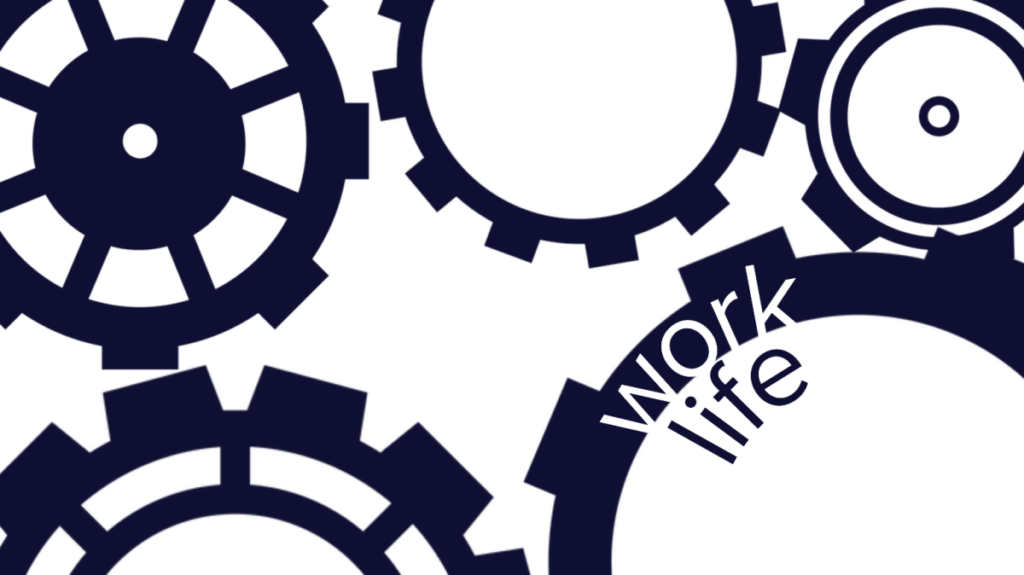This story is syndicated from El Estoque, the newspaper of Monta Vista High School in Cupertino, CA. The original version of the story ran here.
Scrolling through TikTok, one might come across a video where the first frame reads, ‘Being a full-time artist’ with a photo of a woman smiling. However, the second photo says ‘Telling people I’m a full-time artist, with her looking more skeptical. The caption reads: “The artist imposter syndrome is so real. They always think I’m [delusional], broke or both.” Many times, those who choose jobs that stereotypically don’t make much money are judged for it, but we should stop being judgmental.
As we become adults, an essential life skill we will have to learn is balancing our work life with our personal life. However, which one should take precedence? Should it be earning money through our career or taking care of ourselves by prioritizing personal well-being? When we’re younger, school takes priority, and we constantly answer questions like “What do you want to major in?” or “How’s school going?” When we’re older, that’s replaced by work. When you first meet someone, sometimes some of the first questions that often come up are, “Where do you work?” or “What do you do?” Work and the pursuit of money take up a large role in our lives. When we’re younger, we want to be princesses and superheroes, yet once reality sets in, it’s obvious that we can’t. Instead, we feel pressured to choose jobs that guarantee financial stability.

When the COVID-19 pandemic began in the U.S. in 2020, the idea of working to live versus living to work started to gain traction. Millions of people were stuck working remotely, bringing up the thought that if one was stuck at home working on something they didn’t find meaning in, were they truly living? At the end of the day, work will always remain a huge part of our lives: it’s how we survive. Yet striving for a promotion, working on assignments and attending meetings don’t have to be at the core of life. We should shift our thinking, so enjoyment and happiness can exist at the center of our lives instead. By doing this, we’re building a life we don’t need to escape from.
Within life, we’re taught to constantly aspire for the next big goal, whether that’s college, graduate school or getting a high-paying job. There’s no defined endpoint, so we won’t find closure if we define our lives through these accomplishments. Instead of fulfilling the goals that are set for us, like working a certain job, doing a certain major or making a certain amount of money, we should focus on appeasing ourselves through activities we find joy in and prioritizing our mental well-being.
Most parents at MVHS work jobs in business, tech or finance, allowing them to live in one of the most expensive areas in the country. It creates a double-edged sword: the culture of working as much as you can has led to a competitive environment where those who choose to follow their passions feel judged and unappreciated.
At MVHS, 72% of students have felt pressure to take a certain class because “everyone else is.” By taking rigorous coursework, students hope to get into good colleges, allowing for better job opportunities and the possibility of a higher salary. Students take AP Calculus BC instead of AB because they’re told that’s what colleges want, even if it’s not necessarily true. For many students, the desire to get into college outweighs personal fulfillment. Getting into a selective college for a particular major may appear as the only option to get a job that makes money, resulting in passions getting swept down the drain.
Money doesn’t dictate one’s happiness or fulfillment, as shown through the example of construction workers. According to CNBC, although construction is the happiest job in the world, their median salary is far below other jobs. However, because, “they find meaning in their work and can see the fruits of their labor,” it brings joy.
However, living to work isn’t an easy choice for everyone: it’s a luxury, especially at a time when housing, food and overall living prices are going up in Cupertino and nationwide. Activities like traveling, going to concerts and trying new foods, which could be categorized as “living,” all cost money. In some ways, it feels like to live, we need to work our life away at the same time, creating a vicious cycle. However, when work becomes all-consuming, it strips us of the ability to travel, go to these concerts and eat such foods. The possibility to do these is a privilege one should take if they’re able. The balance between life and work is more important than ever.
Despite being encouraged to live to work, we have to acknowledge that living to work can turn a passion into a preoccupation. It’s hours spent on a joy that can turn into an unpleasant chore. It’s also more difficult to form a work-life balance if our hobbies are our work. Without a strong sense of division, it’s tough to find happiness in either.
Working to live and living to work each have their strengths and weaknesses. However, both can also be fruitful and exciting ways to live, and no one who chooses either path should be judged or feel isolated for it.The balance between life and work is a key factor that aids in our own peace and happiness, whether one chooses to work to live or vice versa. At the end of the day, we’re all just trying to make something out of life.



